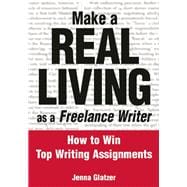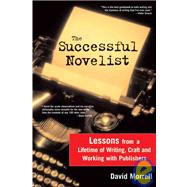Entry Level Writers: Think of Writer Reporters
One of the hardest things for beginning freelance writers to learn is stubbornness. Fortunately for me this has never been an issue with my family, which admittedly has led to many problems in my life but has made me perfectly thick skinned for quick success in a freelance writing career. But not everyone else is like me in that respect, and I think there are tons of talented entry level writers who could be so much more, but get beat down early and never make it back up the mountain to the success that they should be having. While being a full time freelance writer definitely has it's benefits, the freelance writing market is not as easy a place to scrape a living from as many people would have you believe. Still, there are more ways to break into the market than ever before, and if you are completely focused in on your goals of becoming a freelance writer, then you shouldn't let early troubles get you off course. The following is a list of the most common things that deter beginning freelance writers from their goals and some advice or suggestions for preventing the same from happening to you.#1: Stopping Before Getting Started
This is actually one of the most common problems that shoot down the budding career of an entry level writer. There are many ways this can happen.
- Writing only a few articles, promoting them, and not seeing enough income back.
- Information overload that causes writers to lose heart.
- Not seeing the results on popular writing websites other writers brag about having.
- Getting so bogged down in 20 different writing styles that the entry level writer never gains traction
Even if it's only a few bucks a day, that will motivate you more than nothing. Every article you actually write gets you a little closer to your writing goals, while all the research you do doesn't get you any closer than the so called "writer" who sits around thinking all day about how nice it would be to make a living writing and does nothing to get there.
#2: Getting Overwhelmed
There are many different ways this can happen, and part of the freelance writing life is that once in a while things do seem to just avalanche all at once. Especially if you're not used to setting your own hours, or haven't found your main source of income, this can be a very common problem that happens relatively often early on.
One of the best things you can do is to concentrate on one or two main sources of income while doing your research to learn more. You're going to learn more as an entry level writer becoming efficient at one or two sources than trying to dip your toe into 10 different websites.
Early on I was rather lucky. I found Constant-Content, and I stumbled onto Guru.com, and I had no money, no job options, and two busted legs from a car accident so with enough room on a credit card for a year long subscription to Guru, I only had these 2 sites to work with and HAD TO make them work.
Demand Studios, Constant-Content, Elance, and Guru.com are examples of some freelance writing sites where entry level freelance writers can learn the ropes of writing career and can actually work their way up to a full time income. Associated Content would be an example of a site that's easy for entry level writers to break into, but one that you would want to move on from eventually. But early on it's a decent confidence builder, and the potential for passive income makes it a decent place to have some articles once you learn how to efficiently search keywords.
Other sites like eHow, Xomba, InfoBarrel, and HubPages are great places to use writing skills to get into the passive income writing market and to figure out what the difference between the two are. Because while great writing skills can help you earn passive income online, they're not enough.
Choose 2 or 3 at the most to get started with, and get to work. Getting some income in from your efforts while being able to learn online writing skills through experience and trial and error will be the best way to speed up the learning process and keep you moving in the right direction while also keeping you from getting overwhelmed as a beginning freelance writer.
#3: Not Willing to Take Risks
Now as any freelance writer reporter can tell you, there are good risks to take and bad risks to take. You don't want to take shady sounding jobs from Craigslist that sound like a rip off waiting to happen. But I know many people who want to write online who decide they're going to write for one website and only one website or write one type of writing and only one type of writing, and that's it. There are even other writing blogs that recommend this path and all I can say is that in my opinion, this is some of the worst possible advice out there.
A content writer can write content, and that's it. Whatever the price content is going for is the best you can possibly hope for. But press release writers can make very good money for what is usually an easily written and templated one page PR. Ghost writers have more options, as do technical writers, editors, copy editors, copy writers, specialty content providers, writer reporters, and other types of freelance writers.
One of the reasons I survived the early lean months and eventually excelled was because I was willing to learn new types of writing. I had never wrote a press release the first time a client asked me if I could, but I knew that for $50 I was willing to learn. Press release writing turned out to be a fairly lucrative bit of writing for me, as I often could knock one out in an hour with no problem at all and charge $50+ for it. Ghost writing landed me some major projects, as did e-book writing. As my sales letter writing continues to improve, that could knock the income door off its hinges and to an entirely different level.
But none of that would have been possible if I was only willing to write what I was comfortable with. As an entry level freelance writer you will have your strengths and weaknesses, and the same is true once you are an experienced and full time online writer. But that being said, you shouldn't limit yourself to only one type of writing. Unless you're one of the top 10% sales letter writers in the world, that's a good recipe for going broke.
Take some risks beyond your comfort zone and expand yourself as a writer.
#4: Giving Up Too Soon
This is very common. Become a successful writer doesn't happen overnight. Not even close. You need to commit time and hard work to building a full time writing career. If you can put yourself in a situation where you have a full time job and just do writing on the side, I strongly recommend that as the way to go. Can you work even when you don't feel like it? Are you learning how to pitch yourself better with each and every query letter? Is your income slowly (or quickly) climbing with every month?
Many people have the energy for 6 week, 2 months, or maybe even half a year, but the hard core writers are separated from the pretenders at that point as many people don't have the drive to go on, or feel like they're being suffocated or overwhelmed by the sheer amount of work they didn't even imagine was there for writers to do.
Many decent writers give up literally a month or two short of beginning to hit the full time income level, when every experience based lesson is learned and the "A-HA" moments all directly lead to higher pay. If you really want to make a living writing, keep at it and don't quit. Enough work will get you to where you want to be.
That's it for now. This is a little shorter than the usual monster sized freelance writing blog posts, but it'll have to do. Hope ya'll are doing well, and as always feel free to leave a comment and I'll try my best to respond in short time.











Dear Master Dayton: This was a very interesting post. You have a great website, and I am in the process of reading as many of your posts as possible.
ReplyDeleteI'm an experienced writer, but I wanted to learn more about writing online, and yours posts have been very positive and helpful.
Cordially,
Robin
Hi Robin,
ReplyDeleteThanks for commenting. I'm glad you like the post, and hope you found the information on freelance writing and the freelance writing life useful and applicable. Please feel free to look around, and I hope the information here really helps you along the way. If you have any questions from any the posts, but all means feel free to leave a question in the comments section and I'll do my best to help out if I can.
Best,
Master Dayton
Dear Master Dayton:
ReplyDeleteThank you for your kind words!
I started out as a writer a long time ago, but am relatively new to web content writing, so your website has been very helpful.
If I have a question about any items in your articles, I will leave a comment in the comments section.
Cordially,
Robin
Thanks for the great post. I really enjoyed taking the few extra minutes to actaully read the whole thing rather than scan and file. It was well written.
ReplyDeleteCheers
David
Thanks, David, I appreciate the kind words. I hope you found some good useful advice on freelance writing in my blog post, and hopefully you find even more in the future.
ReplyDeleteBest,
Shane "Master" Dayton
Very insightful. I am impressed by your personal story of how you made it work!
ReplyDeleteHi Jade,
ReplyDeleteAppreciate the kind words. At some point in the near future I'm going to share my full story of becoming a freelance writer. The only huge regret I have on that one is that I don't have a picture of the first computer I began my online freelancing career with: the frame of an IBM tower, sides and front open and revealed a CD-Rom held in with cardboard and bubble wrap, and a partially burned out motherboard from an old Gateway, with connecting wires attached by duck tape. And a dial up Internet connection through a phone line. It was amazing that thing turned on, much less started my online writing career :)